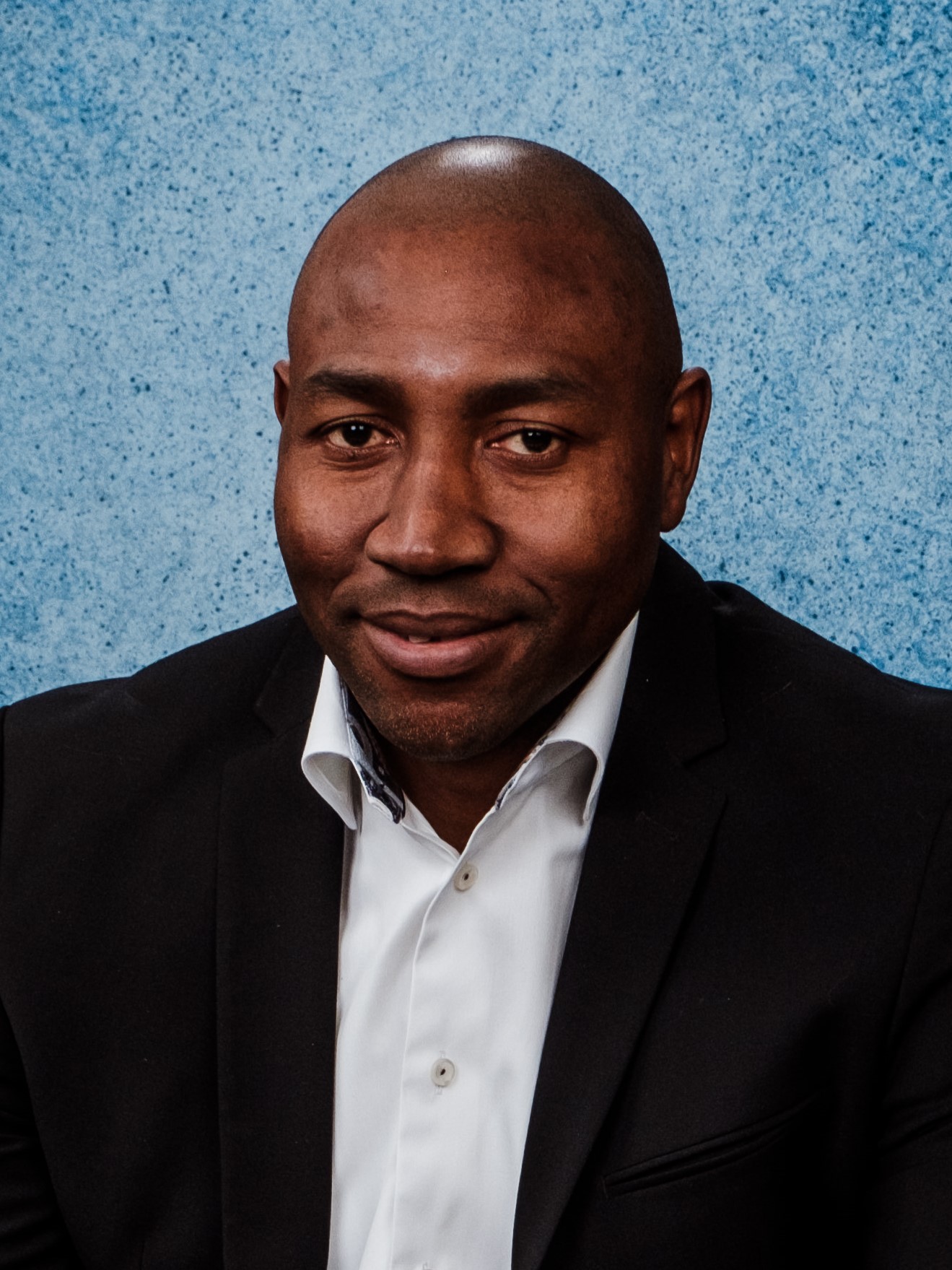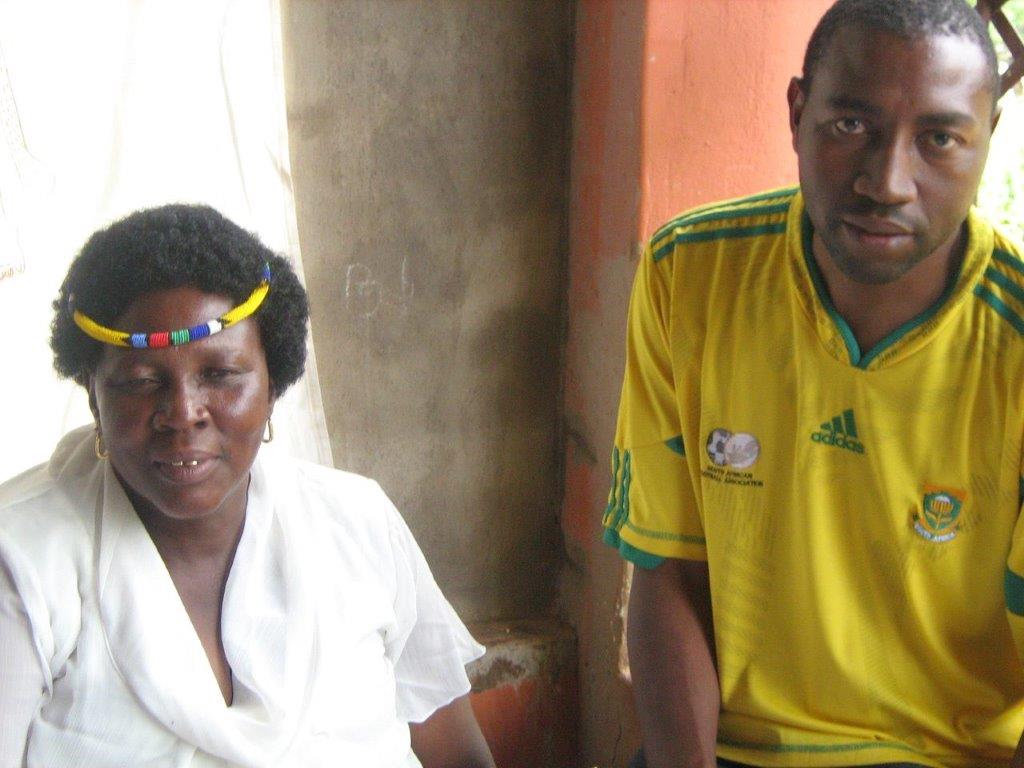South African attorney sets sights high in law and in life
Articles
Spotlight
View more from News & Articles or Primerus Weekly
By Brian Cox
At the core of Jack Phalane’s ambitions is a personal quest to be a better human being.
“I want to grow in becoming a better person in everything I do,” he says. “I don’t want to be one thing at home and one thing at the office.”
The South African commercial attorney credits God as the central source for his striving to live an ethical, meaningful, and productive life.
“I don’t regard myself as religious, but I regard myself as having a relationship with God,” he says. “That shapes all that I do and the how part of everything that I do.”
Born in Johannesburg where his mother, Emily, was a domestic worker, Phalane was actually raised and educated in rural Limpopo, the northernmost province of South Africa. He, his brother and his cousin lived with their grandmother, Maria, who emphasized the importance of education even though she had no formal education and was strict about the boys completing their homework.
“She didn’t allow us to be lazy,” recalls Phalane. “Being lazy was not an option with her.”
During school holidays, Phalane would visit his mother in Johannesburg, which is more than 200 miles away. He describes his mother as someone who refused to take no for an answer when it came to her son and who was prepared to do whatever had to be done to make sure he had a chance at a better life.
“I saw her working so hard to make sure we got the basic stuff,” he says.

He took a valuable lesson from his mother and grandmother that he has carried into his law practice.
“We need to do what needs to be done,” he says. “That’s how I approach life and everything there is. If there’s something that needs to be done, you need to find a way of getting it done. Because if you don’t do it, it’s not going to happen.”
Growing up in Limpopo, Phalane was exposed to limited career opportunities. Other than domestic workers like his mother, he mostly knew teachers, nurses, and a small sampling of doctors. He ruled out becoming a doctor after discovering he couldn’t tolerate the sight of blood and that hospitals made him feel semi-faint, which left teaching as his remaining career choice.
After graduating high school, Phalane moved to Burgersfort, a town in the valley of the Spekboom River near the southern border of Limpopo, where he studied for three years as a student teacher and earned a teaching diploma. While he loves teaching, Phalane has felt compelled to speak for other people since he was young. He recalls advocating for his brother whenever he was in trouble with their mother.
In his first or second year of teachers’ training college, his mother, who had retired and left Johannesburg, recognized that Phalane would need funding to continue his studies. She decided to return to Johannesburg to look for employment again and secured a job with a family where the husband, Ramolao Rakitzis, was a commercial lawyer. When Phalane came to visit his mother in Johannesburg, he had occasion to meet Rakitzis and learn about commercial law.
The young teacher knew little about being a lawyer and knew less about mergers and acquisitions. His understanding was that lawyers mostly represented criminals, which he didn’t want to do, but he was fascinated by the opportunities presented by business law.
“From there, I sort of had access to what a commercial law practice entailed and it sort of shaped what I wanted to do,” he says.
He enrolled at Witwatersrand University in Johannesburg where he studied International Relations and Law. After earning his bachelor’s degree, he entered Wits Law School and graduated with an LLB. in 2000 and then went on to attain his LLM. in Telecommunications Law.
In order to be admitted as an attorney in South Africa, law graduates must complete two years of law articles, which entails working in a law firm as a “candidate attorney” under another lawyer’s guidance. Phalane did his articles with Bell Dewar, the law firm where Rakitzis, the man who first introduced him to commercial law, worked.
As he neared the completion of his articles in 2003, Phalane married his wife, Jacqueline, who he had met through his aunt while he was still studying for his bachelor’s degree.
“She just looked beautiful when I first saw her,” says Phalane with a smile. “I was like, wow, what a beautiful human being. There was something there.”
Immediately after returning from their honeymoon, Phalane joined Fluxmans Attorneys Inc., where he came under the wing of the senior partner, Phillip Vallet. Vallet is known as one of South Africa’s leading commercial lawyers and his client list is wide-ranging, including local and international contacts. Phalane could not have connected with a more effective mentor.
“I explained to him what I wanted to do and he said, ‘By all means, we can do this together,’” recalls Phalane. “That was the beginning of my journey at Fluxmans.”
Vallet embraced a concept he termed “subliminal learning,” which involved Phalane shadowing the senior attorney wherever he went and whatever he was doing. Phalane sat in on every meeting, attended every negotiation. Vallet explained that though Phalane may not understand everything being discussed, he would learn just by listening and absorbing the information.
“He took it seriously,” says Phalane. “He didn’t see me as hard work.”
Over time, Vallet began directing clients to call Phalane with their questions or issues and Phalane began developing his own practice. He is now a director and a member of the firm’s executive committee. He specializes in corporate and commercial law. He is also heavily involved in Black Economic Empowerment transactions. Black Economic Empowerment is a policy of the South African government that aims to facilitate broader participation in the economy by Black people, especially in order to redress inequalities created by apartheid.
In 2017, Phalane earned a Master’s in Business Administration from Wits Business School as a way of elevating his value to clients.
“I didn’t just want to be talking about law in business, but I also wanted to understand the business so that in applying the law I also understand some principles about business,” he says.
In addition to deepening his understanding of business, Phalane maintains a commitment to expanding educational opportunities for South African youth. He serves as chairman of the board for Tomorrow Trust, a nonprofit that provides orphaned and vulnerable children with holistic education-encompassing academics, life skills, self-development, and psycho-social support.
He says he became involved with Tomorrow Trust because “I can touch and feel the impact it’s having on society.”
Phalane and his wife have two children. Jack Jr. is 13 and their daughter, Jessica, is 10. Phalane is determined that his children see a wide horizon of opportunity before them, unlike his own childhood when he saw limited paths to success.
“We’re exposing them to what is out there and hopefully when the time is right for them to choose and follow what they want to do they will have enough to choose from,” he says.
Fluxmans Attorneys Inc., which traces its roots back to a legal partnership formed in the 1890s, is the only Primerus law firm in South Africa. Phalane says the firm became a member in part because they found the Primerus representatives to be “decent human beings” and in line with the firm’s values and priorities.
“We’re a family type law firm in terms of our environment,” he says. “We do what we need to do and we do it well, but at the same time we promote a normal lifestyle. We saw (joining Primerus) as an opportunity to be part of a network where we could benefit and be of benefit.”
Phalane says that South Africa has tremendous business potential, despite massive challenges stemming from corruption and fraud in both the public and private sector.
“The challenge we’re having currently is mostly political, which spills into the economy,” he says. “We just need to deal with the political issues and sort out the economy and I think if we get those right, it will actually boom and become even better.”
In 2017, Phalane was appointed by the President of South Africa (through a Parliamentary process) to sit on the board of the South African Broadcasting Corporation (SABC), one of the country’s largest state-owned enterprises. The public broadcaster runs 19 radio stations and six television stations. In recent years, the agency was plagued with corruption, mismanagement, and political interference. Through his studies, Phalane concluded that the SABC had historically been run more as a state broadcaster than a public broadcaster, acting more as a mouthpiece of the government than a public service.
A client nominated Phalane for the board of directors of the SABC. He was hesitant at first because he saw it as a political appointment, but he eventually agreed to be considered after concluding he must do his part to improve conditions in the country.
“When I decided to go ahead with the interview it was with this thought in mind,” says Phalane. “We cannot as professionals be sitting outside enjoying life in the private sector and blaming everything that goes wrong on the public sector but we are not prepared to participate in or help somehow.”
He was unwilling to be content playing the blame game.

“I’m not a political being, but I would love to say wherever I get an opportunity, I play my part,” he says. “Where I’m able to influence, I try my best to influence in a way that is not just benefitting me, but with the hope that it benefits the wider society.”
During his interview before Parliament, Phalane responded to a question about why he should be appointed to the board by saying, “The one thing I’m sure about is I’m not a politician and I still have a long career ahead of me, and so, I cannot and do not want to be associated with [corruption and mismanagement].”
As part of the SABC board, Phalane has been involved in the development of the entity’s turnaround strategy and is currently chair of the Finance, Investment, and Procurement Committee.
Phalane is optimistic about South Africa’s future. He sees change happening and advancements taking place, even if not at the faster pace he would prefer.
“Things have improved in terms of the speed of doing business,” he says. “We still have challenges in terms of bureaucracy, but it has improved.”
His ambition for the near future is to develop his practice on a broader, international scale where he is collaborating on transactions with colleagues outside of South Africa.
“I’d love to see myself as a global lawyer who is able to sell value,” he says.